Hopebridge Expands Clinical Excellence Through New Role Supporting BCBAs
June 14, 2022
June 14, 2022

As the Hopebridge network continues to grow around the United States, it’s exciting to think about how we’re able to provide more and more children with access to life-changing autism services. While expanding at the rate we’ve taken, the challenge for many companies can be the quality of service—but we make sure that is not an issue at Hopebridge. Though our reach is vast, our centers are still able to operate with the same level of care and intimate family-feeling that we had more than 15 years ago from solely one clinic serving kids with autism spectrum disorder (ASD).
One of the reasons we are able to maintain this level of clinical excellence while also advancing the world of applied behavior analysis (ABA) is through the tiers of support and new roles we created with that exact purpose in mind. In addition to regional board certified behavior analysts (BCBA) who oversee the teams of BCBAs we have in each of our centers, Hopebridge recently added a clinical director position into the mix.
Designed to serve as a guide, mentor and helping hand for our BCBAs and Fellowship students, the ultimate goal is for each center to have a clinical director on staff to provide extra support for the facility’s clinicians and families through evaluations, consultations, training, Plan of Care (POC) reviews, and assistance navigating new or challenging scenarios. Hopebridge’s clinical directors are able to spend more time researching key topics and ensuring standardization and consistency of care, which remain key focuses of the company. These are just a few of the responsibilities you might find in their job description, but if you ask them, the position offers so much more.
Now that they have been serving in the role for a few months, here is what a few of our incredible clinical directors had to say about what it means for them, their team members and the children they serve:
“I remember specific moments in my life when I was around kids with autism or other disabilities. Other kids in my class would ask why they acted differently or looked different, but I wondered why people made fun of them. As a young girl, I specifically remember one of the boys being so nice; he just learned differently than I did. I didn’t understand why people were mean to him. I grew up wanting to help people like him,” said Samantha.
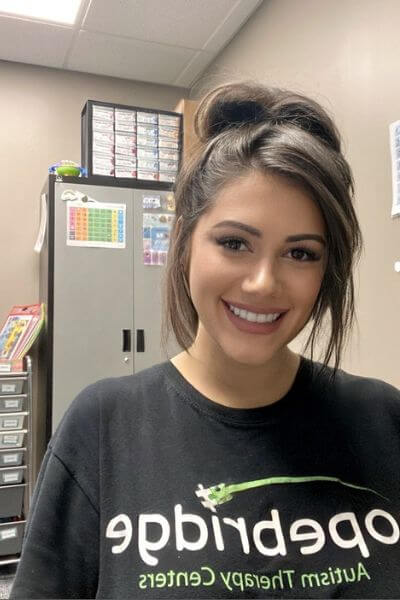
Knowing from a young age that she wanted to work with kids with autism, Samantha originally focused her undergraduate education on speech-language pathology. As she neared the end of her schooling, a conversation with her counselor to discuss her master’s program brought her in a different direction: applied behavior analysis.
“I had never heard of ABA. I didn’t know it existed. I had 100 questions and started researching it right away. As I learned more, I knew it was more along the lines of what I wanted to do,” said Samantha. “It was my calling. I enjoy being a part of a community where everyone’s personalities and characteristics are so different. I like that this field allows me to be creative and individualize everything so we can focus on making each of these kids’ lives better.”
In addition to finding a job that harnessed her passion, she told us that something else started to make more sense to her as she dove deeper into ABA. With this education and knowledge, she was able to guide her mother towards getting her youngest brother tested for autism. He was diagnosed with ASD and is now in high school.
Soon after she became a BCBA in 2019, Samantha sought out new opportunities and found Hopebridge. Since then, she has continued to develop her skills – and help her patients do the same – and has grown within her role until the clinical director position opened.
As a clinical director, Samantha focuses a lot of her time on case reviews and POC reviews. She makes sure all the necessary components are there, that the therapy team is abiding by policies and submitting everything as accurately as possible to insurance, which includes ensuring they have enough information to prove medical necessity. She often takes part in consultations and provides advice on how to work through certain behaviors or new skills behavior analysts haven’t yet come across in their experiences.
“It’s exciting to put all the knowledge I have into it. I would have liked this type of support when I was starting out as a BCBA,” said Samantha. “Our BCBAs are so invested with our patients that it can sometimes be tough to step back and see the bigger picture. I’m able to give them an extra pair of eyes on their cases, provide immediate feedback, bounce ideas back and forth with them, and look at how every piece is connected.”
Samantha enjoys the communication aspect of her role. She helped remodel the training structure to provide more support to mentors, ensure efficiency and maintain appropriateness of care, which also includes giving feedback to BCBAs on how to offer their own feedback to their teams. She supervises her center’s Fellowship students and Case Managers, including them in consults and giving them some decision power during the process. If clinicians are struggling to communicate with families through parent training, she is there to talk them through it. Most of all, she likes that BCBAs know they can come to her to work through their cases together.
Her favorite part of the job is her involvement with every caseload at the Indianapolis East center. Much of this is due to her connection to each BCBA, but she also currently conducts all of the ABA evaluations for the center. She observes, writes the programming and provides clinical direction as to which BCBA is the appropriate fit for them. This is an added benefit for families and BCBAs.
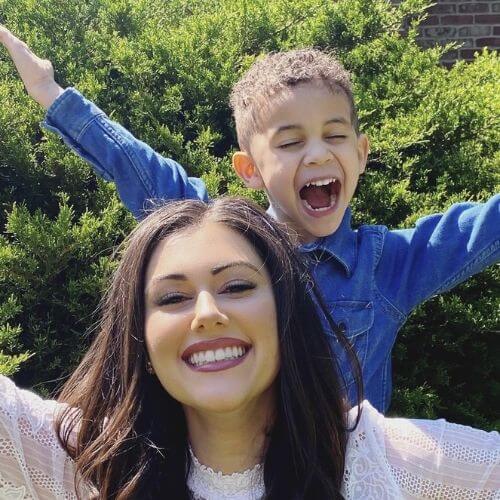
“I’m able to access reinforcement more quickly and regularly in the clinical director role. I get it when a new hire passes an exam, when a child does something they’ve been working hard on with their team, and when one of my clinicians has a successful parent meeting. I get to look at the center as a whole and take pride in everyone,” said Samantha.
“We had one patient who was removed from 10 preschools and daycares due to hyperactivity and unsafe and dangerous behaviors. In less than two years, our team was able to help him turn it all around. He’s no longer on my caseload, but I’ve been able to keep a hand on his case as clinical director. He’s been so successful in his goals and is transitioning to school next month. It’s truly amazing to make this big of a difference in someone’s life.”
Fun fact: “Kids have always been a big part of my life. I’m the second oldest of eight kids and now have a son of my own. I’m also a surrogate.”
What she does outside of the centers: “Right now, my outside life revolves heavily around my son and pregnancy. I’ve become a heavily involved sports mom. He recently started Tae Kwon Do and is so motivated by the color belts. He’s able to identify his goals and when he reaches one, he’s over the moon.”
If she could have any superpower it would be: “I think it would be really cool to read people’s minds. There is a lot left unsaid in this world. I wish I could help people with what they actually want versus what they think is socially appropriate to want. I want to know your genuine hopes and dreams. It would be pretty incredible to read the minds of the learners we work with and really get to understand how to help them.”
Favorite children’s book: “I like Curious You on Your Way. I like to gift this one to my learners after they graduate from the program. The book has so much meaning. Life is ever-changing and there is always some direction you’re going to be headed. I think it’s an interesting life lesson to teach kids.”
Megan Hempfling’s first step on the autism journey began when she took a job as an inclusion assistant at a summer camp, helping kids on the spectrum participate in less restrictive environments. She was hooked immediately and continued on the path when one of her friends asked if she knew anything about ABA therapy.
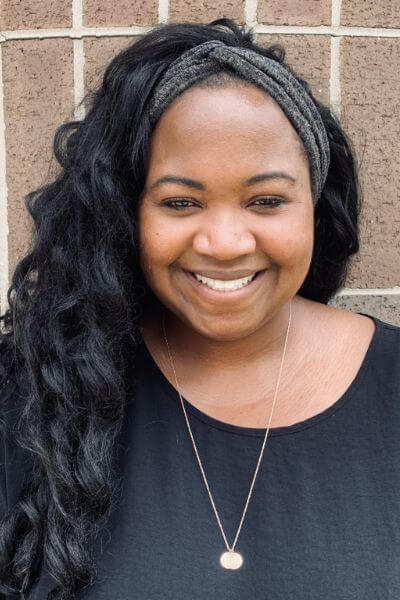
“I knew I loved these kiddos and that I wanted to work in this field. I had never heard of ABA nor had any reference for it, but I looked into it for grad school. My background is in psychology and I love the mind and what makes people tick, so the science of ABA intrigued me. I immediately wanted to pursue a career in it,” said Megan.
Now nearly eight years later – three of those with Hopebridge – Megan has enjoyed experiencing her career’s own progress alongside that of her kiddos. Hopebridge’s therapy center in Fort Wayne is quite large with a lot of BCBAs. The natural dynamic already led to the newer behavior analysts seeking out the more tenured BCBAs, like Megan, for guidance, so she was excited to make it official.
“In most places, working as a BCBA doesn’t typically lead to more promotion opportunities, but Hopebridge recognized this position was necessary to support our BCBAs and further enhance our clinical excellence. The clinical director role was not on my radar but it is cool to be a part of this unexpected growth opportunity,” said Megan. “The clinical division has given me a bit of freedom to mold what this position can and should look like, and it’s nice to have that confidence from our home office.”
Megan enjoys teaching and watching people learn new things, so serving as a clinical director is a perfect fit for her. She loves watching her RBT’s faces light up when they learn something and helping BCBAs click something into place that extends the continuity of care for their patients. She double-checks their POCs and researches topics they may not have enough time to look into on their own. She especially appreciates that she can alleviate some of the hassles for them that she felt in her earlier years by providing this clinical oversight.
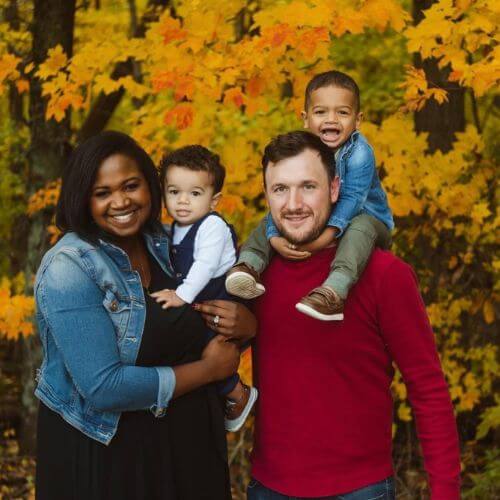
In addition to supporting her colleagues, Megan values the benefit the clinical director role brings to families. She aims to be a familiar face and voice for parents, who now have an extra point of contact for clinical questions. They have someone whose entire job is based around making sure their children receive the best quality of care.
Megan feels that her passion for her work is reinforced each day on the job. Just this month, she received a message from a BCBA that had her in happy tears … and if you know Megan, you know that is not something that happens often! After what was somewhat of a rough day, she learned that one of our patients said to his BCBA, “I want to be a BCBA when I grow up so I can help kids like me.”
“When I saw this, I lost it! I cried and thought, this is it. This is what we’re here for; this is why we do what we do. We love this kid and it’s almost like he knew we needed it that day,” said Megan.
Fun fact: “I’m from Cincinnati, but I somehow married a dairy farmer and now live on a farm!”
What she does outside of the centers: “I mostly hang out with my kids, a two-year-old and a 1-year-old. I love exposing them to new experiences and watching them grow. I also really enjoy reading for fun, but I’m just getting back into it since having my kids.”
If she could have any superpower it would be: “Being able to go back in time. I wouldn’t want to change anything, but rather relive certain experiences over again.”
Favorite children’s book: “Going on a Bear Hunt is currently coming to mind. My 2-year-old loves it. We read it and sing it together and I love that he loves it.”
Joanne Stoner’s path to becoming a clinical director at Hopebridge was a bit different, as she has been growing with the company since she started!
Having worked in a restaurant since she was 16, growth from within was nothing new to her. She started as a host, became a server, then bartender, and eventually moved into management after helping good friends and her husband open a new restaurant in Ohio. The restaurant business became a family affair alongside her husband and kids.
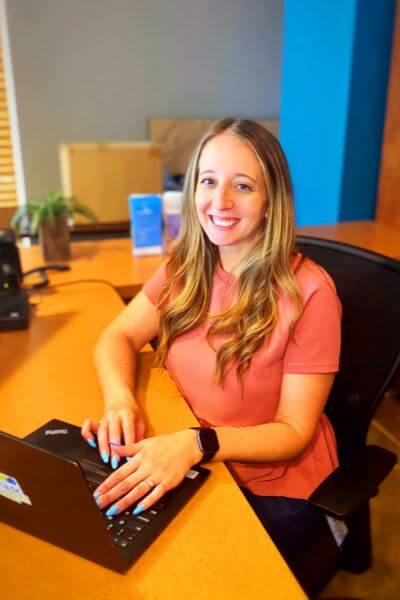
“I acquired some awesome multitasking skills in the restaurant industry, but always knew I wanted to make a difference and help others in my career. I just didn’t know what capacity I could do that in until I found ABA,” said Joanne, who first learned about behavior analysis while she was in graduate school for educational psychology before she made the switch.
“The unknown is amazing. The idea of watching skills develop, taking part in lightbulb moments, and unlocking the potential for these kids seemed like an incredible thing to be a part of, and I love how it not only impacts them, but also their families.”
Joanne began her career in ABA therapy as a Registered Behavior Technician (RBT) at Hopebridge. She loved her job from the get-go and felt like she finally found her ‘a-ha’ moment … she liked it so much that she even teases that every BCBA secretly misses their time in one-to-one therapy as an RBT. From there, she became an RBT Fellow, now known as a case manager at Hopebridge, before becoming a board certified assistant behavior analyst (BCaBA) and then a BCBA.
Besides growing vertically with the company, Joanne also took advantage of Hopebridge’s opportunity to transfer from a center in Richmond, Indiana to Kennesaw, Georgia. It is there that the clinical director position was recommended to her.
“In this field, the burnout rate is pretty high and BCBAs are often stretched thin. It’s fantastic to be able to offer Hopebridge’s BCBAs more individualized support. There are many times as a new BCBA that I could have used this mentorship. I had a great mentor, but she had a full caseload of her own,” said Joanne. “I’ve already received feedback that having someone physically here is tremendously helpful for them when navigating new situations.”
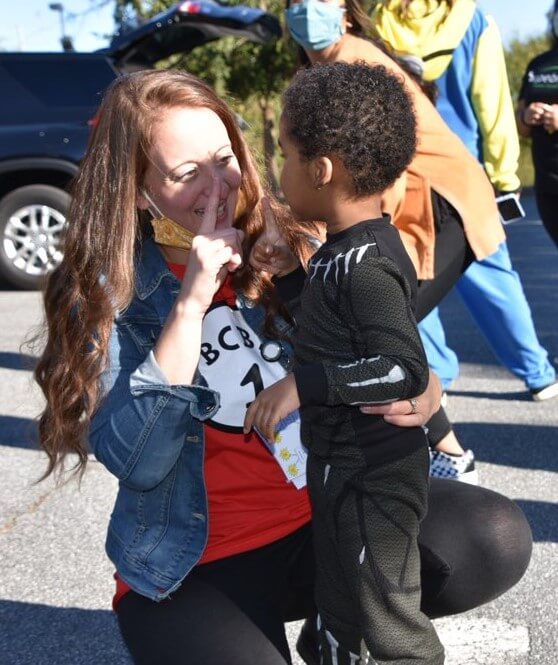
Joanne’s role empowers her to assist others while continuing to develop her own skills. It gives her the time to meet with BCBAs one-on-one to hear more about their progress, catch up on concerns and learn about anything they feel is a barrier. She offers consultation overlaps, where they can choose to directly involve her with a child on their caseload. It can be a challenging case in which they could use extra support with research, a follow-up from a previous concern, or time with someone who has experienced a lot of progress. She aids them in areas that may be new to them, such as transitioning to school or participating in IEP meetings.
Like most of our other clinical directors, Joanne balances her own lighter caseload, in addition to supporting other BCBAs and Fellowship students. She enjoys this element as she feels it keeps her on top of her research and updated on anything that changes in the field. Research and clinical advancement is an important piece of the job to her. She enjoys the act of finding the appropriate studies and figuring out how she can bring them into the clinic to implement new ideas with patients.
“I truly love my job. People outside of our world of autism therapy seem surprised to hear this, but the number of people who aren’t passionate about what they do is shocking to me. I look forward to each day because these kids and their families bring me so much joy and fulfillment,” said Joanne.
“I struggled for a long time to figure out what I wanted to do. I knew I wanted to impact people in some way, but I didn’t know what field that would place me in. Then I found it in ABA. It felt very natural and was a moment of ease. Then every time we see progress in one of our kids, it reaffirms it. Whether it’s big or small, there’s a win every day. In that sense, it’s the job that keeps giving.”
Fun fact: “One of my first dates with my husband was skydiving. The thought of it now is terrifying, but it was exciting at the time.”
What she does outside of the centers: “Softball, chorus, drama and baseball—I’m a typical mom of kiddos with a lot of stuff going on! Summertime is a time to breathe, but everyone here at the center knows we’re ping-ponging all over the place before and after. We also like to take trips when we can, especially to visit family in Michigan.”
If she could have any superpower it would be: “I would clone myself. Flying would be cool, too, but creating multiple versions of myself would be the most functional power.”
Favorite children’s book: “I’ve always loved The Giving Tree. My mom used to read it to us as kids and now I read it to my kids. It will never get old.”
From the kids to our team members, learning and growing is always top of mind at Hopebridge. There is a range of opportunities for growth at every level, including more clinical director openings on the way. Plus, with opportunities for fellowships, continuing education and collaboration, there is something to motivate team members throughout their time at Hopebridge.
If the chance to play a part in clinical innovation and provide best-in-class autism therapy as a Hopebridge Hero sounds exciting to you, we hope you’ll join us on this mission. Apply for an open position in one of our many locations across the country to help us give kids – and each other! – the support they need to lead their best lives.
*Informed consent was obtained from the participants in this article. This information should not be captured and reused without express permission from Hopebridge, LLC.
Team Spotlight
July 10, 2018
Danielle Tosti – An OT’s Heroic Action During a Fire Drill Introduced Her to the World of Autism
Team Spotlight
October 14, 2023
Our ‘Why’: Hopebridge Team Shares What Draws Them to Autism Therapy
Team Spotlight
December 06, 2022
How Hopebridge Continues to Provide Progressive and Ethical Autism Care